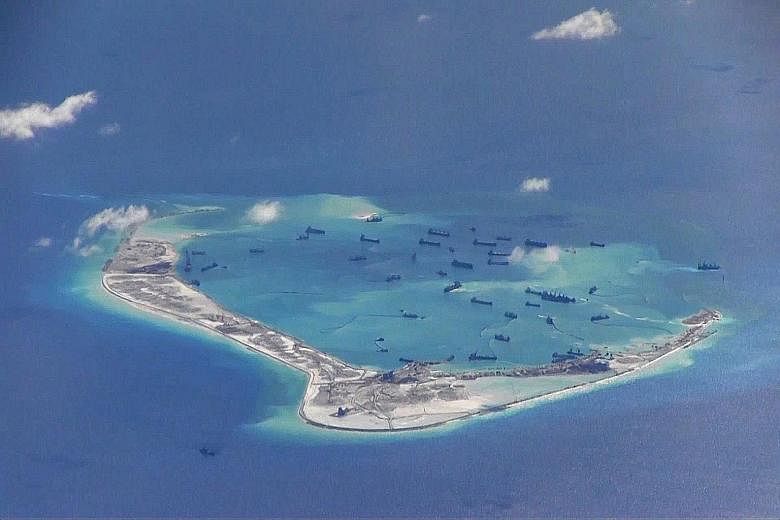Singapore recognises there will be some "push and shove" in the relationship between China and the United States but from a small country's perspective, it does not want to see a clash between the two superpowers, Prime Minister Lee Hsien Loong said in an interview with The Australian newspaper.
Both sides, however, want to keep things calm, he added.
"What is missing is what you would call very loosely strategic trust. Meaning the Americans believe the Chinese want to challenge them in the Asia-Pacific. The Chinese think the Americans want to block them and at least slow their growth."
His remarks were made last week, before the two-day Asia- Pacific Economic Cooperation (Apec) Leaders Summit that ended yesterday.
Referring to the ongoing disputes in the South China Sea, Mr Lee said it is understandable when a global power like the US asserts its rights to enjoy freedom of navigation.
But, he added, it is also understandable for the Chinese to look at the US move and say, "Well, you are raising the temperature'' and ask "why are you coming in from outside of the region?''.
Last month, a US warship sailed within 12 nautical miles of the Spratly Islands. It was the first time since 2012 that the US has directly challenged China's claims of the islands' territorial limit.
The Spratly Islands are claimed by six parties and many have been "creating facts on the ground", Mr Lee noted.
So, a naval power such as the US has to decide whether to let it pass or do something to challenge that, he said. "But I do not see the US claiming any atoll or maintaining a presence there."
He added: "It is not just what the US does, but also what the claimant states do.We have been counselling on all the claimant states restraint and peaceful management.''
As for countries in the region, including Australia, their position on the issue is made difficult by the fact that many are close friends with the US yet see China as their biggest export market. "That is why when we talk about US engagement in the region, or rebalancing, it cannot just be a security, military thing," Mr Lee said. "It has to be a comprehensive relationship, and economics and trade is a big part of that, which is why the Trans-Pacific Partnership (TPP) is a critical thing."
The TPP is a free trade pact that involves 12 Pacific Rim countries, including the US and Japan as well as Singapore. Negotiations were recently concluded.
Two days ago, their leaders met in Manila for the first time since the negotiations, on the sidelines of the Apec summit, to discuss it.
Rachel Au-Yong

